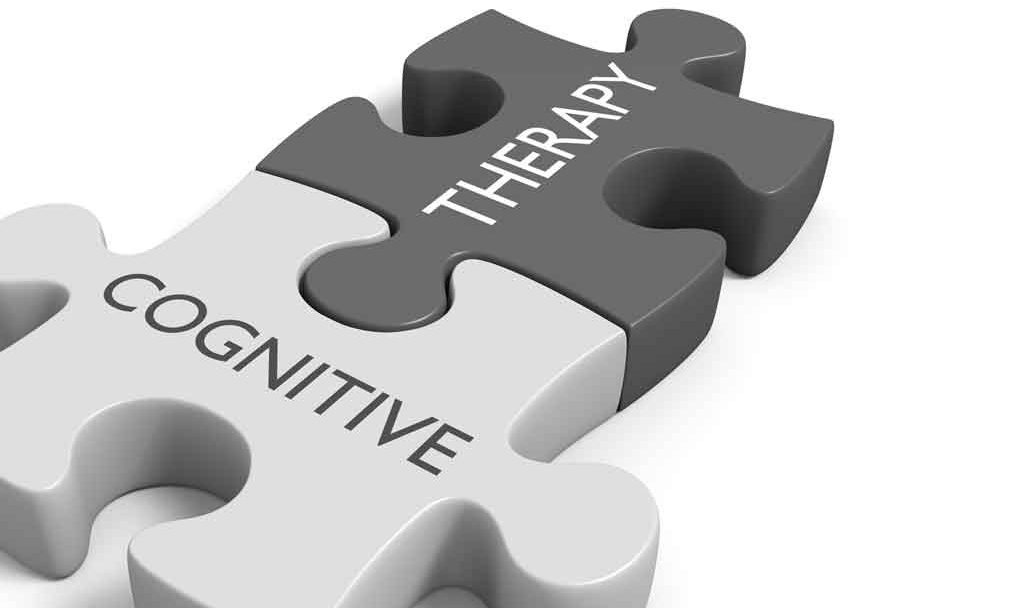Cognitive Behavioral Therapy for Chronic Pain

Cognitive behavioral therapy (CBT) is effective for many psychological problems. It can also help treat chronic pain, without opioids.
Cognitive behavioral therapy, often called CBT, is a well-established therapy for treating a variety of psychological conditions. Researchers have found CBT can help people with chronic physical pain, too.
In fact, there’s evidence CBT can help pain patients reduce or even totally avoid the use of addictive opioid drugs. That makes cognitive behavioral therapy a non-drug way to fight the opioid epidemic, especially in people who have non-cancer pain, according to a report in the Journal of Psychiatric Practice by Drexel University psychiatrists Muhammad Hassan Majeed, MD, and Donna M. Sudak, MD.
YOU MIGHT ALSO LIKE: How to End the Opioid Crisis
What is cognitive behavioral therapy?
Cognitive behavioral therapy is a type of action-oriented talk therapy that helps people change their thinking patterns, according to the American Psychological Association. It guides people to recognize how distortions in thinking create problems for them. CBT also helps people develop a greater sense of confidence in their abilities to solve problems, even in difficult situations.
CBT treatment involves a therapist, usually a psychologist, working with a patient to change behaviors, such as facing fears instead of avoiding them or using drugs or alcohol to cover them up. The therapy has been shown to help many problems, including depression, anxiety, post-traumatic stress disorder, and alcohol and drug addiction — and now chronic pain.
"Cognitive behavioral therapy is a useful and empirically based method of treatment for pain disorders that can decrease reliance on the excessive use of opiates," Hassan and Sudak concluded in their study.
Mindfulness-based cognitive therapy
A person in cognitive behavioral therapy may also learn techniques such as mindfulness meditation and relaxation exercises to calm the mind and body.
A form of therapy related to CBT, mindfulness-based cognitive therapy (MBCT), uses deep breathing and meditation techniques. It was originally developed specifically to help people with recurring episodes of depression or anxiety to prevent relapse.
Mindfulness-based cognitive therapy can improve symptoms of depression in people with addictions and help physical health conditions such as chronic pain, the American Psychological Association notes.
What is chronic pain?
Chronic pain is pain lasting several months, usually at least three to six months, according to the National Institutes of Health. Whether back or neck pain, headaches, pain from an underlying disease, injury, or medical treatment, chronic pain is extremely common. The National Institutes of Health notes over 25 million American adults surveyed reported they had experienced chronic pain for at least three months.
It may seem psychological therapy would do little for physical pain, but the brain and body connection is powerful and plays an important role in chronic pain and how people cope with ongoing discomfort. Cognitive behavioral therapy helps patients understand pain is a stressor. But, like other types of life stress, they can learn to adapt, cope, and feel better, according to Majeed and Sudak
The brain-body chronic pain connection
Researchers have found many of the brain systems involved with how a person experiences pain overlap with parts of the brain that process emotions. When people experience negative emotions such as fear, anxiety, and anger, some of the same brain systems responsible for these emotions also rev up the experience of pain, according to the National Institute of Neurological Disorders and Stroke.
That explains how calming areas of the brain through interventions such as cognitive behavioral therapy can reduce or relieve pain, and why CBT and related therapies can be useful non-opioid treatments for chronic pain.
Cognitive behavioral therapy has a "top-down" effect on pain control and the perception of pain and appears to benefit the brain, according to Majeed and Sudak. Research shows chronic stress is linked to a reduction in the volume of gray matter in the brain, but CBT, over time, can normalize this brain change as stress is relieved.
The opioid epidemic
When people with chronic pain were tested before and after cognitive behavioral therapy to see if their perception of pain changed, CBT reduced pain scores. Because of this effectiveness, Majeed and Sudak believe cognitive behavioral therapy can help people faced with chronic pain reduce or even avoid the use of opioid pain relievers and the risks of those drugs, including overuse, addiction, overdose, and death.
In their report on the subject, Majeed and Sudak concluded CBT can be used as a standalone treatment, combined with other therapies, including non-opioid drugs, or to reduce the opioid doses required to control severe chronic pain.
"There is a need for a paradigm shift from a biomedical to a biopsychosocial model for effective pain treatment and prevention of opioid use disorder," Majeed said. "Increased use of CBT as an alternative to opioids may help to ease the clinical, financial, and social burden of pain disorders on society."
Updated:
May 10, 2023
Reviewed By:
Christopher Nystuen, MD, MBA